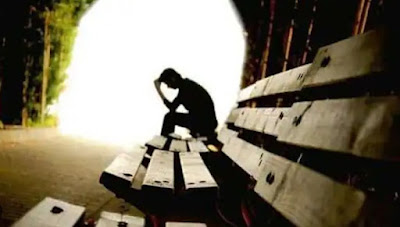What Ifs?
Suicide remains one of society's most profound taboos, a tragedy that unfurls a myriad of unanswered questions in its wake. Each time we encounter this heartrending act, we're plunged into a tumultuous sea of 'what ifs'. What if a single sentence we uttered could have made a difference? What if our mere presence, our fleeting actions, might have changed the trajectory? Conversely, what if our words or deeds inadvertently added weight to their burden? Such haunting inquiries linger, only to be enveloped by the inexorable embrace of eternity. I pen this blog, a reflection born from the increasing stories of souls lost, each life so deeply interwoven with countless others. Their absence leaves an unbridgeable void, a silent space that resonates louder than any spoken word. In the profound words of Carl Jung, "The most intense conflicts, if overcome, leave behind a sense of security and calm that is not easily disturbed." It's this undying hope that we cling to, as we navigate the profound silence left behind by those we've loved and lost.
Do we ever truly acknowledge the depth of pain that leads someone to contemplate leaving this world? While each person's journey is uniquely their own, it's impossible to capture the magnitude of such anguish in casual conversation. Imagine the incongruity of broaching such a topic over a dinner table, "Darling, I've been contemplating the permanence of my departure... would you prefer tea or coffee?" The stark juxtaposition highlights society's discomfort with discussing such deep-seated pain. When someone reaches a point where life's burdens become too overwhelming, they may feel ensnared in an abyss of darkness, a place where hope's light seems eclipsed. It's a realm where their internal torment blinds them, obscuring any potential relief.
It's an all-too-common refrain: the disbelief echoing when someone, perceived as robust and put-together, succumbs to their internal struggles. The phrase "They seemed to have their act together," reverberates in hushed conversations, underlining our society's profound misunderstanding of mental anguish. But strength, as we define it externally, can sometimes be a well-crafted facade. Beneath that facade might lie a lifelong battle, where the individual's pain has been a constant companion. Perhaps they've become masters of diversion, skillfully deflecting from their internal wounds, or maybe they've cloaked their anguish so adeptly that it becomes invisible to the world. Carl Jung once said, "Who looks outside, dreams; who looks inside, awakes." If only these souls had found a way to share their pain, to unveil the silent scream that remained trapped within. But here again, I am drawn into the vortex of "What Ifs." Is this perpetual questioning the only solace we're left with?
The increasing rates of suicide weigh heavily on my heart, prompting me to question: have we inadvertently crafted a world dominated by fear? In 2021, England and Wales saw a distressing rise in these tragic occurrences. With 5,583 suicides registered, there was an almost 7% increase from the previous year, which had 5,224 deaths. When broken down, this equates to an age-standardised mortality rate of 10.7 deaths per 100,000 individuals. And as sobering as these figures are, they remain conservative when juxtaposed against global metrics. Fast forward to 2023, and the UK is grappling with a harrowing reality: every week, 115 lives are tragically cut short by suicide, with men representing a staggering 75% of these heart-wrenching incidents. As we grapple with these figures, we must confront the larger issue at hand — understanding and addressing the profound emotional pain engulfing so many in our communities.
In the silent aftermath of such tragedies, a profound heartbreak lingers, often concealed behind closed doors. I count my blessings daily — a fulfilling vocation, the love of a dedicated wife, the joy of a child, and the serenity of my surroundings. Yet, I am acutely conscious of the precarious balance of life. We stand on the precipice, often just a single misstep, a fleeting moment away from adversity, loss, or heartbreak. But herein lies a crucial distinction: I am part of a community. The strength of communities is immeasurable, capable of shouldering pain, offering solace, and guiding us through our darkest hours. "Fear Not", for divinity isn't merely a distant celestial entity. God resides in each of us, manifesting in the noble virtues we radiate — be it kindness, charity, or compassion. Imagine a world where these virtues enveloped and uplifted those grappling with their inner demons. Can we transform 'What If' from a reflection of past regrets to a call to proactive love and understanding?
In the face of overwhelming despair, where society is
riddled with pain and anguish, we must collectively pause and introspect. What
is our role in this intricate tapestry of existence? In this dance of life,
where every action ripples through time and space, are we mere spectators or
active participants? Every soul lost to the abyss of desolation leaves behind
not just a void, but a call to action. It's an urgent plea to transform our
societies, to cultivate spaces where compassion, empathy, and understanding
thrive. Our communities, with their boundless potential for support and solidarity,
must rise to the challenge, transcending barriers and offering a haven to those
silently battling their storms. As we stand at this juncture, I implore each
reader: Can we collectively envision and work towards a world that not only
acknowledges pain but actively strives to alleviate it? When the haunting echo
of 'What If' reverberates in our hearts, will we transform it into a clarion
call for change?



Comments